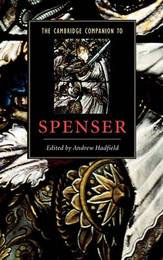
|
The Cambridge Companion to Spenser
Hardback
Main Details
Description
The Cambridge Companion to Spenser provides an introduction to Spenser that is at once accessible and rigorous. Fourteen specially-commissioned essays by leading scholars bring together the best recent writing on the work of the most important non-dramatic Renaissance poet. The contributions provide all the essential information required to appreciate and understand Spenser's rewarding and challenging work. The Companion guides the reader through Spenser's poetry and prose, and provides extensive commentary on his life, the historical and religious context in which he wrote, his wide reading in Classical, European and English poetry, his sexual politics and use of language. Emphasis is placed on Spenser's relationship to his native England, and to Ireland - where he lived for most of his adult life - as well as the myriad of intellectual contexts which inform his writing. A chronology and further reading lists make this volume indispensable for any student of Spenser.
Reviews'This valuable compendium of synoptic essays includes well-measured contributions from leading figures in the field: Richard Rambuss, Richard McCabe, Willy Maley and Hadfield himself ... they offer carefully calibrated accounts of the complexity of late Elizabethan Anglo-irish affairs and timely reminders of the need to read literary texts in their own terms. The Companion as a whole gives an excellent sense of Spenser's strange position simultaneously at the very centre and the extreme margin of his culture, with one foot in the court and the other on distant Irish soil.' Times Literary Supplement
|